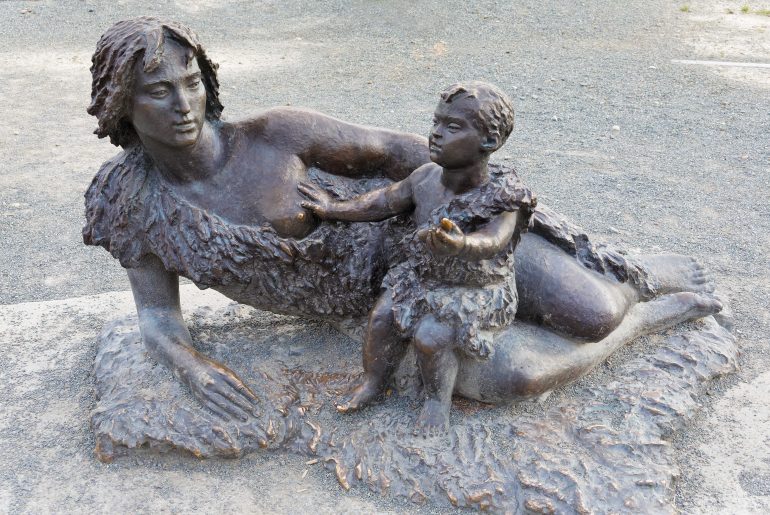Having a baby is such a joyous, happy time. I am not referring to unwanted pregnancies or extreme situations such as abuse, war or poverty. I am speaking of a child that is very much wanted, within a stable and supportive relationship.
Most of the moms in my practice with PND are slightly older. (PND can happen at any age, to any socioeconomic group. In this blog, I am reflecting specifically on the patients in my practice.) They chose to study or establish a career before starting a family. They might have suffered from depression or anxiety in the past; they may not have. They are used to being effective in the world. If they work hard and apply themselves to a problem, they are used to succeeding.
Sometimes, there was a problem right from the beginning of trying to conceive. There might have been a few miscarriages, or maybe fertility treatments were needed. True to form these ladies did what was needed to conceive and carry the child they so very much wanted. They researched and consulted with specialists. They stopped alcohol, started yoga, eschewed sugar.
Eventually, they were rewarded with a viable pregnancy. In some instances, pregnancy was difficult with gestational diabetes, pre-eclampsia or a few bleeding scares. Some of the moms applied academic rigour to the pregnancy, reading every book on the matter, carefully tracking when the baby was grape sized and when the fingers were forming. Some of the other moms were more Zen, just watching themselves grow and enjoying baby’s kicks.
I know that it is not always the case, but the moms in my practice did everything right. They did not smoke or drink. They took their vitamins and went to antenatal classes. At antenatal classes, they were advised to formulate a birthing plan, which they did and discussed at great length with their O&G. Sometimes things went according to plan, sometimes they did not and involved emergency Caesars and neonatal ICU stays.
For all my moms suffering from postnatal depression, the choirs of singing angels when they held their baby for the first time did not happen. Right from the start, there was nagging anxiety. (PND can happen start at any time around the birth of a child. It might start before delivery or several months after the birth of the child. In my practice, the early signs were there from birth.) Depression was not that much of a feature, but anxiety certainly was- is my baby drinking/ pooping enough? Will I cope?
The first two weeks after baby’s birth were typically ok. The moms dealt with Baby Blues with aplomb. The majority of all new moms have at least some level of Baby Blues. It usually occurs from about day four post delivery to roughly day 14. At this time hormone levels plummet and milk comes in, which can be very painful. It is the recovery period from a Ceasar or long labour. So moms are very fragile and tearful at this time. Nature works along to help; newborns are typically more sleepy during this time. Life also cooperates – fathers are on paternity leave, and extended family are popping in and mostly being helpful.
As the weeks passed, the anxious soundtracks in my moms’ heads grew louder. Sleep deprivation got added to the mix. Grannies helpfully advised to “sleep when the baby sleeps”. This proved impossible for my moms because babies are noisy sleepers. And by now the anxious moms were hyper-attuned – jumping up for every grunt. Then they were awake, and their anxiety did not let them fall asleep again.
It is normal, in the first few months after a baby is born to be sleep deprived, tearful, irritable, foggy brained. These are also symptoms of depression. My moms are Copers. They have PhD’s, businesses or have run the comrades. They understand about grit and determination. And that is part of the problem. They don’t acknowledge the problem very easily and would rather normalise the problem. Or say, “as soon as I get some sleep it will be better”. They feel if they just keep at it, then things will settle and come right.
But it gets worse. If there is a bit of a problem (like colic), then the mom might get to me a bit sooner. Otherwise, the breaking point is often reached when the mom has to return to work.
These ladies are used to functioning at a high level. They are not used to being foggy brained, sleep deprived anxious wrecks. They feel that their performance at work is suboptimal. They fear that they will be exposed as charlatans. They feel that they are letting their spouses down by being unhappy all the time. And oh the guilt at “abandoning” their babies all day. Working moms all have guilt, that’s part of the definition of being a working mom. Depressed working moms swim in oceans of guilt. They feel like failures at work and failures at home.
Very often just getting a bit more support helps, educating the dads and getting them to step up a bit more. Although, this has mostly not been the case in my practice. I have been fortunate to have very eager to help, hands-on dads. They are just as mystified as their wives in trying to figure out what’s wrong.
Neither my patients nor their families realise that PND is at play. They might not realise how bad things are. (Copers tend to minimise symptoms, or defocus on baby “I’m ok. Baby has colic”) My patients have felt very ashamed – ashamed at being sad when they should be happy, ashamed that they are not coping. Post Natal Depression can get very bad. Moms can start losing touch with reality. They might even become psychotic, suicidal, homicidal. (Fortunately, this is rare. Post Natal Psychosis occurs in about one in every 1000 woman who has a baby)
I am always grateful when patients get to the point when they let me help them. Post Natal Depression and anxiety respond well to treatment, and it is enormously gratifying to be part of the process. Stigma and misinformation around PND must be challenged. (Tom Cruises rant against antidepressants comes to mind). The greatest critics though are the mothers who judge themselves so harshly. Sometimes mothers need to be mothered.









2 Comments
Thanks for an interesting and informative post as usual. I have a comment and two questions. The Mail & Guardian published a very good full page spread on postpartum psychosis recently. It seems the condition is hardly recognised and there are up till very recently almost no dedicated facilities for treatment – yet this journalist and her baby pulled through. It was quite a heartening story and certainly a wake up call.
I wonder whether there is a documented pattern of postpartum depression, stress, anxiety and general loss of respect for the mother among some men. I have seen it twice in the same individual. Both times it commenced with the birth of his child and ended in divorce or permanent separation. I know you can’t make generalisations from a sample size of 1, which is why I am asking, is it a known phenomenon?
Lastly why do some people believe celebrity bull rather than the expertise of those who have spent a decade of study at varsity and dedicated their careen to helping people with their mental health? I have an idea but this is not the forum to discuss it. Maybe you could do a myth busting post one day in which you debunk 5 or so of the most dangerous celebrity myths about psychiatry.
Thanks, David. Psychiatry myths is a great topic! In answer to your question as to why divorce often happens after a birth of a child, I cannot comment on individual cases. What I do know is that when a man and woman become parents, they both have to grow up. It is not about them anymore. Some more immature/ narcissistic men might struggle with the concept that their needs are no longer the priority.